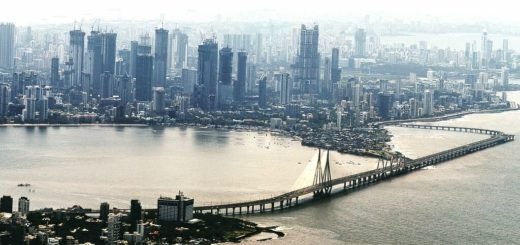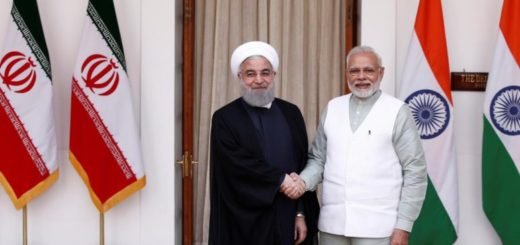How is new Argentine President coping with the Economic Crisis and Pandemic?

This week is an important one for Argentina’s history as the country celebrates not only its Independence Declaration Day (25th of May) but also it was only a year ago since current President Alberto Fernández was publicly announced as a candidate running for office by Cristina Fernández de Kirchner (CFK).
In a video posted on Facebook, CFK presented her running mate – she going for VP with two presidential mandates on her record – while explaining that she did not seek a place on the ballot, rather a place in history.
The idea of being committed to representing the national interest gave them the victory on last October elections. But since Fernández took office the world was turned upside down by the COVID-19 pandemic.
Tensions amid the Mercosur block comes at the same time when top-class world economists such as Joseph Stiglitz, Edmund Phelps and Carmen Reinhart are claiming that restructuring Argentina’s private debt is essential, and the creditors are only being asked to accept a proposal that would reduce their revenue stream but make it sustainable.
Last Friday Argentina was declared a selective default, while the government is acting actively against the coronavirus, with aggressive policies in terms of housing and pharmaceutical research.
Financial Default
Argentina was already on the brink of default since former neoliberal President Mauricio Macri began to redefining the foreign debt in 2019. This default was “virtual” as in practice the country has been paying its debt gradually while being exposed to the downsides of bad rates and pressure from bid creditor groups.
The economic picture by December 2019 was already difficult: stagflation (a mix of the 2018 recession and 50% of inflation) and the risk of default. Dealing $66.2 billion, 21 bonds account for $41.5 billion were released by the Macri administration. This represents 60% of the bonds due to exchange. A clear example of how neoliberalism actually works. Earlier this year the IMF had already claimed that the Argentine debt is unsustainable. In a context of the pandemic, where middle-income countries such as Argentina try to use resources to foreign debt, trying to pay an interest rate of 2.2% seems competitive.

Guillermo Rodríguez is the Director of the ReporteSud, a consultancy agency based in Buenos Aires. According to his view, the pandemic has modified drastically the chessboard on what Fernadez began his presidency last December. He won with 48% of voters and now the government approval increases up to 80%. So, it’s clear that the Argentinian president has been benefited a lot with this circumstance. For him the pandemic has cut Fernandez’s political honeymoon, but from the beginning, Fernandez assured that between health and economy, he prefers taking care of the health of Argentinians:
“Must be posted that the option to take care of health is taken in a context in which Fernandez administration would not have been successful with the economy. Because he took office with stagflation and the probability of a default on the external debts. So, now Fernández can blame the deeper recession looming ahead on the pandemic and -perhaps- an hypothetical default.
The global effect of the pandemic modifies the context in which the negotiations with creditors going to be taken. It’s a really important shift. Because is the IMF who gives the arguments to the country for an aggressive proposal on the restructuring the debt. On February the IMF Staff Statement on Argentina pointed out that “yielding a meaningful contribution from private creditors is required to help restore debt sustainability”. And then, on March 19th the IMF calculated that “the cash-flow debt relief needed ranges between $55 to $85 billion over the next decade”. The Argentinian proposal to creditors is around $42 billion, and this not sound crazy at some global financial and economic circles.
In this context, one thing must be pointed out: Argentinian government decided not to pay $500 million of interest last 20th April. So, if there no agreement about the external debt, Argentina would go to default on the next 20 of May (when expires the 30 days grace period of the unpaid interest). The creditors want the government to sweeten the proposal and the government has a global context to say “I cannot pay more”. The negotiation is open.”
The Argentine government decided early measures against the COVID. From the beginning, Fernandez assured that between health and economy, he preferred to take care of the health of Argentinians. And that’s is why the early measures taken by his administration. Compulsory and social isolation has strong support from citizens. And in fact, the government approval jumped raise increase up to 81%, when he only won the presidency with 45% of the votes.
The COVID-19 Pandemic
Octavio Bramajo is a demographer specialized in public health and elderly populations. From Barcelona, he explains that any demographic or epidemiologic measure is relative in itself, a value is considered low or high in comparison to another existing one:
“Any comparison with Brazil, Peru or Ecuador (the three South American countries most affected in relative terms) leaves the Argentine strategy in a good place to face the COVID-19. From a purely epidemiologic point of view, it doesn’t seem to be an excess of observed mortality in Argentina that can be attributed to the disease (a comparison of the observed mortality obtained with expected values if there were not a pandemic happening) which means, so far, a success for the policies taken to contain the virus.
However, within the country itself, the big question lays around the flexibility of the quarantine for the return of economic activity. A group of over 200 academics and employees working in different fields of research the Center of Epidemiology, Demography and Statistics released a statement a few weeks ago warning about the particular situation in Latin America to face the pandemic. Among them, the challenge lies in the informal settlements where poverty and informality meet. These territories contain populations with other chronic diseases which add additional challenges to the region strategies against COVID-19.
The Metropolitan Area of Buenos Aires is undoubtedly the most important economic nod of the country, but also the most exposed one to the virus. Hence, the strategy of how to “open” the region is key towards sustaining success without compromising even further the already fragile economic situation that the country is facing. In this sense, massive testing is an extremely useful tool to diagnose the evolution and possible counter backs of the opening processes, and the fact that Argentina can now produce its own tests means great news in this battle.”

Towards a True Independence
Some voices claim that the best outcome would be for Argentina to declare a default and use those funds to rebuild its sanitary system, and this view also resonates with the social consequences of putting the whole Argentine society under debt, as when the pandemic is over, the recovery of the economy will face scenario with an increase of social conflict, an impacted productive network, some economic and fiscal indicators severely damaged and perhaps with a partial default of its external debt. We must also have to see how does the ‘play-still’ strategy play out until the new deadline of 2nd of June for negotiations with the creditors.
As Rodriguez points out, the question remains on how the government will administer the exit from the quarantine, and not only the exit but also the national government doesn’t have enough money to support the benefits endlessly. That is why the ruling Frente de Todos wants to discuss a bill to increase income by taxing great fortunes. Probably this discussion will return the normality in which the ruling party and the opposition have different points of view because up until now the pandemic was taken as a “malvinization” (recalling the Malvinas/Falklands war, where all parties agreed with the decisions) and this is not real.
The latest press conference announcing the continuity of the quarantine resonated with the metaphor used by the President to state that the government is now “chasing the virus and not the other way around” and that, in contrast to what is happening in Brazil, the quarantine will prevail for as long as it is necessary. But most importantly, Fernández closed the meeting with a message addressed for the most vulnerable population:
“We have reached a point for which we have no previous records. From now on the experiences of other countries are of no use, as neither Europe or the US have informal neighbourhoods like the one existing in Argentina and Latin America. We have prepared ourselves to attend the needs of those who live in informality, but we need for those who live in those areas to understand that they play a part in this. We will be by their side, but we also need for them to trust us and help us”.
The last week of May is usually very important for Argentina. This year, more than ever.


















